1. QUAD BIKE BAN
Ministers have called for a ban on quad bikes for children, following the death of 15-year-old Iris Goldsmith. The vehicles can reach up to 50mph, making it tricky for children to control and steer the vehicles. The Health and Safety Executive explained how 28 deaths from vehicles, such as quad bikes, have been investigated in the last decade.
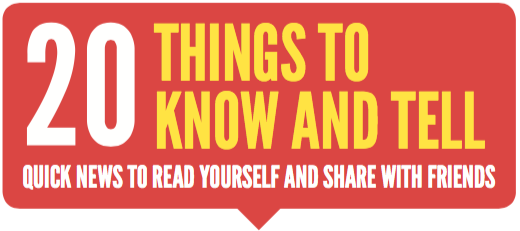
2. HOT IN THE CITY
London could feel as hot as Barcelona by 2050, according to a new study. That isn’t necessarily a good thing, though. The study looked at how a 2oC temperature increase in future could change the world’s 520 major cities. Concerns raised include severe drought and poor conditions for those with asthma.
3. NHS AND ALEXA
The NHS has teamed up with Amazon’s Alexa to help patients diagnose their symptoms, instead of having to go to hospital or the doctor’s surgery. The virtual assistant will be able to give advice on what to do if you have things like a migraine. Alexa will get information from the NHS website. It’s hoped the move will help to reduce hospital waiting times and pressure on doctors. There are concerns, though, as to how safe the service will be.
4. GOVERNMENT HUB
A huge new UK Government building in Edinburgh will be named after the Queen. The hub will be known as Queen Elizabeth House and will accommodate almost 3,000 civil servants. It opens in March 2020.
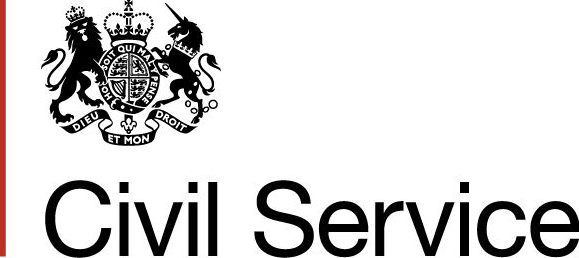
5. LIVING IT UP
The finalists of the Young Songwriter competition 2019 are performing live on 22 June in a special showcase to celebrate Song Academy’s tenth anniversary. There will be a special guest – former X Factor star and singer-songwriter Janet Devlin! Discover more at www.songacademy.co.uk.
6. INFLATABLE WARNING
The Royal National Lifeboat Institution (RNLI) is warning people about taking inflatable unicorns to the beach this summer. The popular pool floats can be very dangerous at sea, as their long necks can act as sails and pull you away from the shore in seconds. The RNLI was involved in 479 sea rescues involving inflatables last year. They’re urging people to leave them at home.
7. UNLOVED OLIVES
Olives are now the UK’s most disliked food. New research by HelloFresh has found that Brussels sprouts have been knocked off the top spot and only come in fourth place now. Gherkins were voted our second least favourite, followed by shellfish.
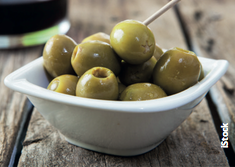
8. CHESS CHEAT
A chess grandmaster called Igors Rausis has admitted to cheating during the prestigious Strasbourg Open – by using his phone in the bathroom. The incident is said to be the most high-profile cheating scandal to hit the sport.
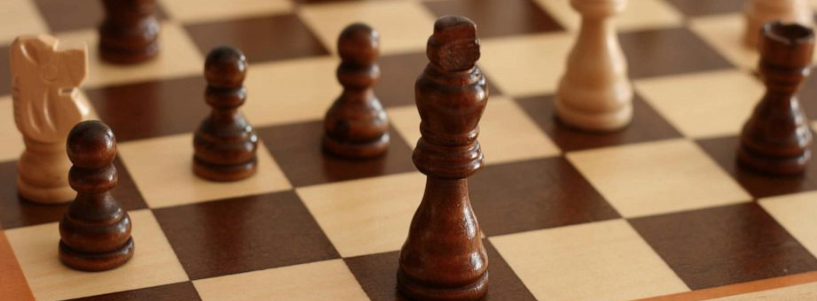
9. DEER DELIGHT
The summer holidays are officially kicking off in style with the Deer Shed Festival. Running from 26-28 July,
the festival features music, theatre and science for all the family. First News will be there, so make sure you come and say hi! Find out more at deershedfestival.com.
10. GETTING ACTIVE
Public Health England has launched its latest Change4Life campaign, which aims to inspire young people to get active this summer. The Shake It Up campaign features ten-minute games – all inspired by your favourite characters from Disney and Pixar. Check out more at www.nhs.uk/10- minute-shake-up/shake-ups.
11. SUMMER PROJECTS
The Mayor of London, Sadiq Khan, has announced plans for 43 summer projects to help vulnerable young people this summer. It comes after Mr Khan said there is a clear link between poverty in London and
the rise in serious youth violence.
12. LEAST PUNCTUAL
Vueling has been named the least punctual major airline flying from the UK. Data from the Civil Aviation Authority showed that the Spanish airline’s departures were on average 31 minutes late last year.

13. 100TH SURPRISE
A 100-year-old woman had her birthday telegram from the Queen delivered by horse! Anne Tape from Cornwall was given the special post by her own grandson, who is a postmaster. He turned up to her 100th birthday party on horseback.
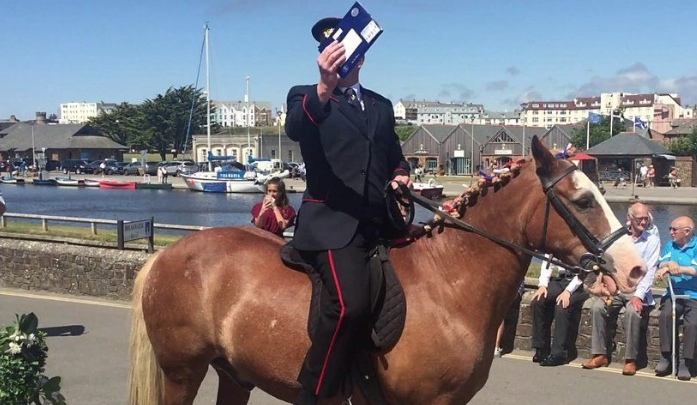
14. SUPER MARMITE
A super strong version of Marmite has hit supermarket shelves. Extra Old, or XO, was first introduced to the world nine years ago, but then disappeared again. The makers say it gets its extra strong flavour after being left to mature for 28 days – four times longer than the standard version of Marmite. The special spread is now being sold at Tesco.
15. NEPAL FLOODS
Thousands of people have signed a petition after the BBC announced it was scrapping free TV licences for people over the age of 75. Many argue that the annual charge of £154 for a TV licence (a legal document everyone must have to watch TV) is far too expensive for elderly people and that the TV is a source of comfort and entertainment for many who can’t get about much or live alone. The BBC said it was a difficult decision to take, but that otherwise they would have to cut back on programming.
16. POLL RESULTS
A new report has found that the majority of pet owners have no idea that their cats and dogs can donate blood. We asked you: Would you be happy for your pets to donate blood? Loads of you voted, with 76% of you saying YES, and 24% of you saying NO.
COMMENT
“I would definitely be happy to. It could save the life of someone else’s pet and I know how much they mean to me so I would definitely be on board,” said First News Live! user, 9dolphin.
17. PREMIERE CANCELLED
Disney has cancelled the film premiere for Descendants 3 after the death of star Cameron Boyce. The TV broadcast will be dedicated to his memory.
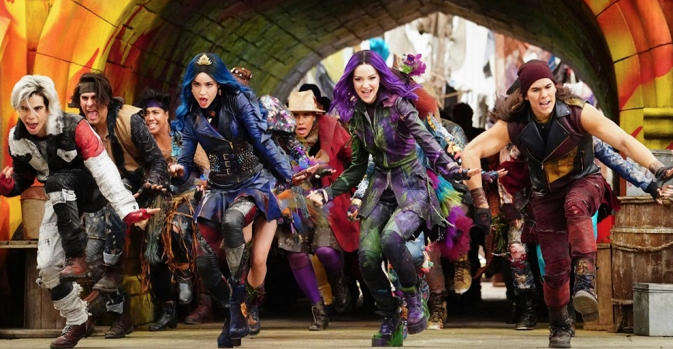
18. ANTI-BULLYING
Instagram is introducing a new feature to help tackle online bullying. The tool will alert you before you share a post, if it believes your comment could be negative or offensive to others. It’s hoped this will give people the chance to re-think their post.
19. BARBIE IN SPACE
A new Barbie doll has been created, which aims to encourage more girls to become astronauts. The doll is inspired by Italy’s first woman in space, Samantha Cristoforetti.
20. IN THE MONEY
Children get an average of £9 a week, according to a new study. This comes from pocket money, gifts and payments for doing chores. The study looked at 75,000 young people between the ages of six and 18.
